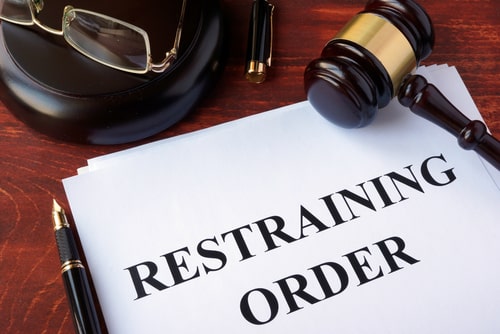Can You Challenge a Restraining Order Against You?
 If you have been served with a restraining order, it is helpful to understand your rights and the legal options available to you. While a restraining order can significantly impact your life, you may be able to challenge it under certain circumstances. A Texas lawyer can help you figure out if you have the potential to challenge your situation.
If you have been served with a restraining order, it is helpful to understand your rights and the legal options available to you. While a restraining order can significantly impact your life, you may be able to challenge it under certain circumstances. A Texas lawyer can help you figure out if you have the potential to challenge your situation.
Grounds for Challenging a Restraining Order
To successfully challenge a restraining order in Texas, you must demonstrate that the order was issued based on false or insufficient evidence. Some grounds for challenging a restraining order include:
- Lack of evidence: If the petitioner fails to provide sufficient evidence to support their claims of abuse, harassment, or stalking, you may argue that the restraining order is unwarranted.
- False allegations: If you believe the petitioner has made false accusations against you, you can present evidence to refute their claims and demonstrate that the restraining order is baseless.
- Improper service: In Texas, you must be properly served with notice of the restraining order hearing. If you were not served correctly, you may be able to reverse the order on procedural grounds.
The Importance of Acting Quickly
If you wish to challenge the restraining order, you must act promptly. You typically have a limited time to request a hearing after being served with the order. This hearing allows you to present your case and argue against the necessity of the restraining order. Failure to request a hearing within the specified timeframe may result in the order becoming permanent.
Gathering Evidence to Support Your Case
To effectively challenge a restraining order, you must gather evidence that supports your position. This may include:
- Witness statements from individuals who can attest to your character or provide insight into the situation.
- Text messages, emails, or other communication records that demonstrate the nature of your relationship with the petitioner.
- Photos, videos, or audio recordings that contradict the petitioner’s allegations.
- Police reports or other official documents related to the case.
The Role of a Criminal Defense Lawyer
Challenging a restraining order can be a complex and emotional process. It is highly recommended to seek the assistance of a criminal defense lawyer in Texas who can guide you through the legal system and protect your rights. Your attorney can:
- Review the restraining order and assess the strength of the petitioner’s case.
- Develop a strategic defense based on the specific circumstances of your situation.
- Gather evidence and witness testimony to support your challenge.
- Represent you during the hearing and present arguments on your behalf.
- Negotiate with the petitioner’s legal counsel to reach a favorable resolution, if possible.
The Consequences of a Restraining Order
It is important to recognize the potential consequences of having a restraining order against you. Depending on the type of order, you may be prohibited from contacting the petitioner, possessing firearms, or visiting certain locations. Violating the terms of a restraining order can result in criminal charges and severe penalties. By successfully challenging the order, you can protect your rights and avoid these negative consequences.
Contact a Denton County, TX Criminal Defense Attorney
If someone served you with a restraining order, you can possibly challenge it under specific circumstances. However, you will need to act quickly. Call Magaña & Van Dyke at 940-382-1976 to speak with a Cooke County, TX criminal defense lawyer and receive a free consultation.





